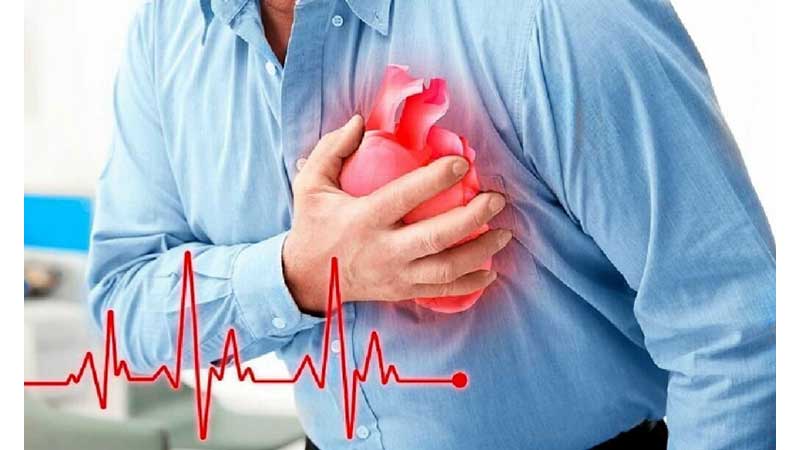Heart attack is a disease in which there is a complete cessation of blood flow through one of the arteries that feed the heart, resulting in the death of the corresponding section of the heart muscle. For myocardial infarction it is enough to completely block the artery within 15-30 minutes. Myocardial cell death is accompanied by such a strong pain syndrome that sometimes the patient has mental disorders.
Causes of myocardial infarction
1. Gradual growth of atherosclerotic plaques leads to the gradual closure of the artery, this process can develop for years or even decades. As a rule, this process is accompanied by symptoms of cardiac angina.
2. Arterial thrombosis. Arterial thrombosis is caused by the rupture of the surface of atherosclerotic clotted cells. These cells can be invisible in size and do not manifest themselves. But when it explodes and divides, it attracts platelets like a magnet. As a result, platelets combine with erythrocytes to form a thrombus, and in the next stage, blood circulation is cut off.
3. Prolonged spasm of the artery, although rare, results in a heart attack.
4. Inflammation of the walls of the arteries - some infectious diseases can also cause a heart attack.
5. Thrombosis - blockage of blood vessels by thrombi.
Symptoms of myocardial infarction
The main classic symptom of a myocardial infarction is chest pain. This pain also affects the left scapula, left arm and lower jaw. It may be accompanied by nausea, vomiting, a sense of fear of death. Nitroglycerin, which patients usually take for cardiac angina, does not reduce the pain.
However, not all types of heart attack are accompanied by heart pain. Sometimes it occurs in a untypical form or almost without any symptoms.
In addition to chest pain, symptoms include: shortness of breath, swelling of the legs, weakness and fear of death.
Diagnosis of myocardial infarction is determined by 3 criteria:
- The first criterion is the presence of chest pains of an anginous nature, i.e. stenocardia. The pain lasts at least 15-20 minutes. It usually takes 40-60 minutes to bring a patient to the doctor.
- The second criterion is the changes in the electrocardiogram. There are typical signs of heart attack, but in some cases, changes on the ECG can only be found by carefully comparing it with earlier records.
- The third criterion - during the destruction of heart cells, which usually occurs during a heart attack, a number of substances fall into the blood from the heart. These substances normally exist only in small quantities. Their growth can be determined by blood test.
Treatment:
- Treatment of myocardial infarction consists in relieving (stopping) the pain syndrome, restoring blood flow in the affected vessel, reducing myocardial need for oxygen and treating complications.
- During a heart attack, we first experience pain syndrome. In this case, the patient can not find a place for himself/herself due pain, the patient is extremely excited, there may be confusion, and the patient may suddenly jump out of his/her place and run away. Therefore, anesthesia is always a top priority. Usually, the narcotic analgesics morphine, omnapone, promedol are used for this purpose.
The next stage of treatment is the restoration of blood supply in the affected artery. This is achieved by using a vasodilator, such as nitroglycerin, which is injected continuously intravenously in a drip. In addition, drugs that prevent thrombosis (anticoagulants) are used.
The next stage is the reduction of myocardial oxygen demand. For this purpose, the certain prescribed drugs slow down the heart rate to 50-55 per minute and normalize the pressure. Needless to say, the patient is recommended a strict bed regime for the first days. If there are manifestations of acute heart failure, diuretics are prescribed. In addition, the patient during at least the first week is observed in the intensive care ward or intensive care unit. Currently, the most effective way to treat a heart attack is a life-saving percutaneous coronary intervention.
Risk factors - factors that accelerate myocardial infarction:
- Smoking is the most serious factor.
- High level of cholesterol in the blood.
- Low-mobility lifestyle and overweight.
- High blood pressure.
- Diabetes mellitus or high blood sugar.
If you do not have all this and you are under 55 years old, if no one in your family has had a heart attack before the age of 55, the risk of heart attack is very low.
Bless you!!!

